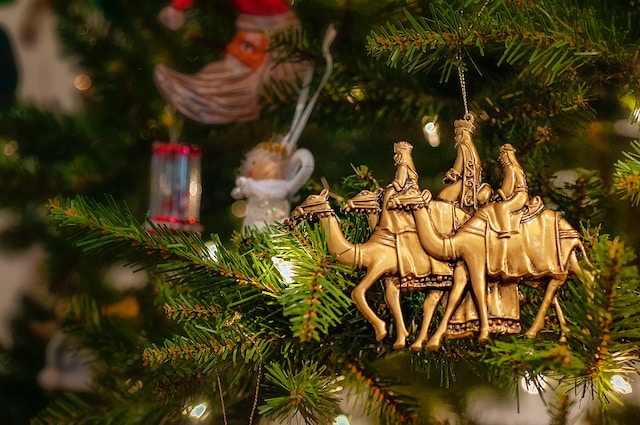What three items did the Three Kings give to Baby Jesus?

The birth of Jesus Christ, a pivotal moment that has been celebrated for centuries, is often associated with the visitation of the three wise men, or kings, who traveled from afar to bestow gifts upon the newborn. This enchanting narrative has been retold through various mediums, from carols to nativity plays, embedding itself deeply into our Christmas traditions. But what exactly were the gifts that these kings brought, and why are they significant?
The Journey of the Wise Men: Matthew 2:1-2
“Now when Jesus was born in Bethlehem of Judea in the days of King Herod, behold, wise men from the east came to Jerusalem, saying, ‘Where is he who is born King of the Jews? For we saw his star in the east, and have come to worship him.'”
The wise men, often referred to as kings, embarked on a journey, guided by a star, with the sole purpose of worshiping the newborn king, Jesus. Their journey symbolizes faith, determination, and the acknowledgment of divine intervention in the world.
The Gifts of Significance
The three gifts presented to Jesus by the wise men were:
- Gold
- Frankincense
- Myrrh
Each of these gifts was not chosen at random but was deeply symbolic and prophetic regarding Jesus’s life, death, and kingship.
Gold: A Symbol of Kingship
- Significance: Gold has universally been a symbol of wealth, royalty, and kingship. By offering gold to baby Jesus, the wise men acknowledged His kingship over the earth.
- Biblical Reflection: Throughout the Bible, gold is associated with purity, beauty, and divine nature, which aligns with the recognition of Jesus as the King of Kings.
Frankincense: A Symbol of Divinity
- Significance: Frankincense, an aromatic resin used in incense and perfumes, symbolizes Jesus’s divinity and His role as our High Priest who intercedes for us.
- Biblical Reflection: In the Old Testament, frankincense was used in the temple worship, where it was burned as a fragrant offering to God, symbolizing prayers ascending to heaven.
Myrrh: A Symbol of Suffering and Sacrifice
- Significance: Myrrh, often used for anointing oil and embalming, foreshadowed Jesus’s suffering, death, and burial, symbolizing His sacrifice for humanity.
- Biblical Reflection: Myrrh is mentioned in the Song of Solomon, representing beauty and suffering, which prophetically speaks of Jesus, the beautiful Savior who suffered for us.
Practical Applications
- Gifts of Love: The wise men gave Jesus valuable and symbolic gifts. Similarly, let’s offer our love and kindness to those around us, recognizing these as precious gifts.
- Journey of Faith: Just as the wise men traveled a great distance to worship Jesus, let’s be encouraged to persevere in our faith journey, trusting in God’s guidance.
- Worship in Spirit: The wise men worshiped Jesus with genuine hearts. May we too worship God in spirit and truth, offering our lives as a fragrant offering to Him.
The story of the wise men who traveled from afar to present gifts to Jesus is not just a beautiful narrative but a symbolic representation of recognizing and honoring Jesus as the King, the Priest, and the Savior. Gold, frankincense, and myrrh, each tell a piece of the story of Jesus’s life and mission on earth, intertwining the physical and spiritual realms in a divine orchestration of redemption and love.
As we reflect on these gifts and their symbolism, let’s be inspired to offer our own gifts to Jesus: our lives, our worship, and our service to others, acknowledging Him as our eternal King, our divine Intercessor, and our sacrificial Savior. May the story of the wise men embolden our faith, encouraging us to seek Jesus diligently, worship Him wholeheartedly, and serve Him joyfully in every season of our lives.




























